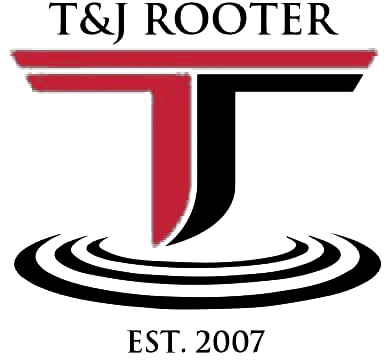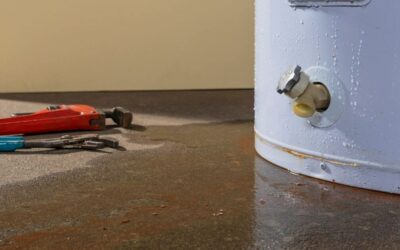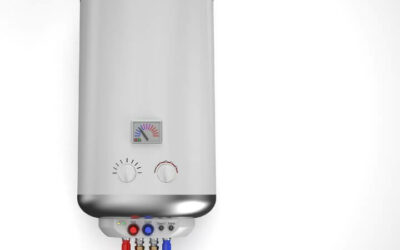It’s always a headache when your hot water heater suddenly stops working and you have to figure out if you can fix it yourself or if you’re better off just replacing it. But why wait for it to break to try and fix it?
Here at Avoid Common Hot Water Heater Problems: What You Need to Know we have compiled a comprehensive list of common hot water heater problems and their solutions so you can avoid a full-blown breakdown. With regular maintenance and careful attention to areas that are prone to cause trouble, you can enjoy a well-functioning hot water heater for many years to come.
We’ll tell you what to look out for: from possible leaks to check valves and thermostats, learn the signs and how to tackle them. We’ll also show you how to prevent sediment buildup in tanks and check venting before a full-blown issue arrives. So keep reading, and you’ll be avoiding common hot water heater problems in no time!
Quick Review
Common hot water heater problems include mineral build-up, broken heating elements, and pilot light issues. To avoid these issues, it is important to regularly maintain your hot water heater by flushing out the tank and changing any worn parts when necessary.
Why is a Hot Water Heater Important?
A hot water heater is an essential appliance for almost every household, allowing us to have access to hot water for a variety of reasons, such as washing dishes, taking showers, and doing laundry. Hot water heaters are also important when it comes to reducing costs in the long run due to their efficiency with energy consumption. On the other hand, expenses associated with installation and maintenance can be expensive compared to traditional electric or gas heaters.
No matter what side of the argument you’re on, it’s clear that hot water heaters are important. Not only do they provide access to clean hot water but they also reduce our environmental impact by taking advantage of efficient heating options. Additionally, recent advances in technology allow them to operate at their full potential while still remaining cost-effective. There is no denying that modern hot water heaters are invaluable appliances that are needed in most households today.
Having access to a reliable hot water heater is a necessity for households around the world, however there can still be problems from time-to-time. To ensure that your water heater remains up and running at its best, understanding possible issues and how to avoid them is essential. In the following section we will discuss common issues surrounding hot water heaters and strategies you can use to keep them functioning properly.
Common Hot Water Heater Problems and How to Avoid Them
Hot water heaters are an essential part of any home, however, they can also have several problems that can present a big headache for any homeowner. Some common hot water heater problems include leaky tanks and pipes, temperature issues, and sediment buildup. Avoiding such problems requires understanding the causes and symptoms of each of these issues as well as knowing what preventative maintenance and repairs should be done.
Leaky tanks and pipes are usually caused by corrosion over time. Rusting or age can cause the tank to crack or corrode along with the pipes and valves around the heater. Look for signs of moisture buildup near loose fittings or valves in order to identify that a pipe or tank is leaking. Failure to repair this issue quickly will lead to further damage and put the homeowner at risk of flooding. To avoid this, check periodically for any signs of leaks and replace any aging parts before they become an issue.
Temperature issues can arise if the thermostat on the heater is set too high or low. Having it set too high could potentially cause scalding water, while setting it too low could result in the tank not reaching its desired temperature. Improperly set thermostats can also cause the tank to run more than necessary which leads to higher energy costs. Check periodically that your heater’s thermostat is set correctly in order to prevent this from occurring.
Sediment buildup typically manifests itself by making noises like knocking or banging when the water heats up after being turned off. This usually occurs due to a build up of minerals within the tank, which causes it to overheat and expand leading to cracking or ruptures. To avoid such sediment buildup, flush out your tank at least once a year with a professional cleaner or vinegar solution – both of which are readily available hardware stores near you.
These are only some common hot water heater problems that homeowners should be aware of, however if issues do arise then professional assistance may be required in order to prevent further damage or hazards. Though there are several potential issues that can occur with a hot water heater, staying proactive with maintenance and repairs will ensure that you enjoy long-term use without having to worry about common problems arising down the road. With proper upkeep, you can ensure that your hot water heater fulfills its purpose of providing consistent hot water without having to worry about expensive repairs or safety concerns associated with faulty equipment. With that said though, it’s important to properly set temperatures in order for your hot water heater work effectively and efficiently during regular use – something we’ll discuss further in our upcoming section regarding setting proper temperatures for your system.
Essential Points to Remember
Hot water heaters can develop common problems such as leaky tanks and pipes, temperature issues, and sediment buildup. Avoiding such problems requires understanding the causes and symptoms of each issue as well as preventative maintenance – such as checking pipes for signs of leakage, setting thermostats correctly, and flushing out tanks yearly with a professional cleaner or vinegar solution. Homeowners should remain proactive with upkeep to ensure consistent hot water without worrying about repairs or safety concerns due to faulty equipment. Additionally, it is important to set temperatures correctly in order for the system to work effectively and efficiently.
Improper Temperature Settings
Improper temperature settings can be one of the main causes of hot water heater problems. Some people assume that all hot water should be extremely hot to prevent bacteria from forming and growing. While this is certainly true as it relates to laundry and other cleaning, setting the water too hot can cause skin irritation, scalding, and major water heater maintenance issues. On the other hand, there are those who set their water heaters at a low temperature in an effort to save energy and money, not recognizing that this can facilitate the growth of bacteria.
Ultimately, each person must find the right balance between comfort and safety. The temperature setting on your hot water heater should be comfortable in order to avoid skin irritation while still reaching 120 degrees Fahrenheit to minimize bacteria growth and keep it safe to use. If you are unsure what temperature setting is best for your situation, consider speaking with a professional or conducting more research on the subject before making an adjustment.
No matter what temperature you choose, it’s important to monitor and adjust accordingly if needed. This will help ensure that you’re not putting yourself at risk for dangerous and costly hot water heater problems down the road. Unexpected sediment buildup can have disastrous consequences for your home’s hot water heater, so it’s best to take proactive steps now.
Sediment Buildup in the Tank
Having your water heater set at the wrong temperature can be a hassle, however, this is not the only problem that you may encounter. Another common hot water heater issue is sediment buildup in the tank. When an excessive amount of sediment accumulates in the tank, it results in decreased efficiency, increased energy costs, and a decrease in the life expectancy of your system.
The primary cause of sediment buildup is overall hard water. When hard water passes through your system, minerals like calcium and magnesium accumulate at the bottom of your tank, creating sediment build-up in the form of scales and deposits. This will require periodic flushing to remove, preferably by a licensed plumber since this can be difficult for many homeowners.
For those who do not want to employ a plumber, there are certain strategies which can help prevent mineral sediment from building up within your system to begin with. Installing a water conditioner or softener can be beneficial to reduce the hardness of the water entering your home, decreasing both maintenance and overall energy usage. Using a descaling chemical every few months can also help remove scale buildup inside your tank, though this should only be done by someone familiar with hot water heater systems.
Normally, excess sediment inside a system will cause undesired effects, however there are some cases where sediment can act as an insulator to protect parts from corrosion or overheating. For those who live in areas with particularly hard water, having a slight layer of sediment in their system might even increase efficiency. In order to make sure you don’t have too much – or little – accumulated debris in your tank, it’s important to have regular maintenance inspections performed by a professional plumber.
This brings us to our next point: Low Water Pressure. Poor flow throughout your hot water system might be caused by a several factors such as incorrect sizing of pipe fittings and valves or even blocked pipes due to solidified minerals; however it could also potentially stem from something simple such as an undersized tank size compared to the demands of your household fixtures. It’s important to identify where the issue lies if you’re experiencing lower than normal pressure levels so that you take steps towards getting it resolved quickly.
Low Water Pressure
Low water pressure can also be a common problem when it comes to hot water heaters. Low pressure can cause a variety of issues, including slow hot water flow, weak spray in faucets, decreased water temperature and even complete failure of the hot water heater to produce warm water. Low pressure is typically caused by a combination of clogged aerator screens, corroded plumbing pipes and improper installation.
In most cases, the best way to resolve low water pressure is to check the aerator screens on each fixture connected to the hot water heater. If these screens are dirty or damaged, they should be removed and cleaned or replaced so that water can pass through them freely. Additionally, if there are any signs of corrosion or rust present on any plumbing pipes connected to the hot water heater, these as well should be replaced or fixed in order to restore full water pressure and improve the efficiency of your hot water heater system. Finally, if the hot water heater was not properly installed in the first place then this should also be addressed by a trained plumber or electrician in order for everything to function correctly.
Overall, low water pressure is a common issue that might seem overwhelming but can easily be resolved with some simple maintenance and inspections. By following these tips and further inspecting any underlying causes of low pressure such as corroded pipes or improper installations, you will be able to prevent any further damages and costly repairs associated with this problem while restoring your hot water heater back to its peak performance. Moving forward, it is important to keep an eye out for any other potential problems that could emerge due to leaks and clogs within the system components.
Leaks and Clogs in the System Components
Leaks and clogs in the hot water heating system components can be a major problem, causing low water pressure to be even more of an issue. Leaks and clogs can happen in either the pipes or valves used to transport hot water throughout a home. They are especially common in older systems that contain galvanized steel pipes which corrode over time. Clogs can also occur due to minerals that build up in the pipes over time. Even if the incoming water pressure is low, both of these problems can cause further issues with insufficient hot water to the rest of the home.
The key to preventing such problems is regular maintenance. Homeowners should make sure that their systems are regularly inspected by a qualified technician who can detect any potential problems within the piping or valves before they become catastrophic. In addition, both the pipes and valves should be replaced with newer materials such as PVC piping as necessary to prevent corrosion from occurring.
By addressing these potential issues quickly, homeowners not only benefit from having properly functioning plumbing but also save energy and money in comparison to if they waited until a more serious issue occurred. With regular maintenance and inspections, leaks and clogs in the hot water heating system can be easily avoided, allowing for proper operation and effective use of energy. In order to ensure houses run efficiently, it’s important to pay attention to too much energy consumption as well. By monitoring energy usage, homeowners could potentially find savings on their power bills each month while running an optimized hot water heater system all year round.
Too Much Energy consumption
In addition to the potential for leaks and clogs in hot water heater components, energy consumption is another common issue. Modern hot water heaters have features like enhanced insulation and efficient burners to reduce energy consumption but many older systems are still misused and can cost more than necessary on monthly energy bills. As hot water systems continue to gain attention from homeowners, it’s becoming easier to find the best models that offer a mix of low energy consumption with reliable performance. It’s important to do your research when purchasing a new hot water heater because some models may be energy efficient, but lack other features that make them less reliable or durable according to ConsumerReport.org.
On the one hand, choosing a model with considerable energy efficiency could be inconvenient if you are strapped for cash but it means long-term savings on your monthly bills. On the other hand, opting for an outdated system may be cheaper upfront but is bound to be costly due to its higher operating costs in the long run. The key is striking balance between the two – getting a reasonably priced model that offers greater energy efficiency, reliable performance and durability.
The best way to avoid high energy consumption and related costs is regular maintenance. Servicing your hot water heater once every year with an experienced technician helps ensure that all components are functioning correctly and running at optimal capacity – thus reducing chances of breakdowns and unexpected expenses. With regular maintenance and proper use of your hot water heater, you can make sure that any issues regarding too much energy consumption are avoided altogether.
Making sure that these problems never arise is the most important step whenever it comes to keeping your hot water system in top form – which leads us into our next section about regular maintenance as a preventive measure for common hot water heater problems.
According to the US Department of Energy, lack of maintenance is one of the most common hot water heater problems which can lead to a shortened lifespan of the unit.
The same study found that 29% of hot water heaters fail due to pilot light problems, while 23% fail due to thermostat issues.
According to the National Fire Protection Association, the leading cause of residential property fire damage in 2018 was a malfunctioning heating system, including gas and electric hot water heaters (accounting for 18% of reported fires).
Regular Maintenance to Avoid Issues
Regular maintenance is key for avoiding hot water heater problems. While excessive energy consumption may be an issue in certain instances, regular maintenance can help decrease the amount of energy being used and reduce risk of issues arising with the hot water heater. Scheduling routine inspections with a qualified plumber helps to ensure that all of the components within the hot water heater are functioning properly and that no potential problems are present before they become larger issues.
One side of the discussion argues that regular maintenance can come at too high of a cost which outweighs
In some cases, the noises may be a sign of sediment buildup at the bottom of the tank. If this is the case, it’s important to drain and flush the tank to remove all of the accumulated sediment and mineral deposits. Finally, if all else fails, you may need to get an expert technician to examine the system more thoroughly and suggest repairs or replacements if needed.
any potential benefits to avoiding issues. Prices vary depending on your location and specific needs, but generally an average inspection costs around $150-$175 per hour. Some consumers must also buy extra parts, such as an anode rod, to replace during inspections. The extra money spent on maintenance can end up costing more over time than simply dealing with a broken part down the road.
Another side of the argument is in favor of routine upkeep and suggests that spending money at the onset on inspections can save you money in the long run by avoiding costly repairs due to future malfunctions. In addition, regular maintenance keeps energy costs lower than if left unchecked as energy efficiency will increase. For example, according to Energy Star, by increasing insulation on your water heater by just 1 or 2 inches can reduce your electric bills by 4-9%. Furthermore, it helps lengthen the life span of your hot water heater, meaning less replacement cost in the future that may result from leaving it unchecked and minimizes any risks associated with having a poorly maintained or malfunctioning system.
To better illustrate how effective regular maintenance is for avoiding hot water heater related problems, consider the case study of an Arizona family who opted for regular inspections for their hot water heater setup. They immediately noticed improvements in performance and reduced their annual electric bills by 21%, which equates up to around $160 saved each year just on repair costs alone. This goes to show that while paying upfront may seem like a lot initially, it could save you thousands of dollars in potential repair costs if something were to go wrong in future months or years down the line from lack of proper upkeep.
Overall, regularly scheduled maintenance is essential for both keeping energy costs low and avoiding long-term problems with your hot water heater system. Without proper inspections, there is a greater risk of parts malfunctioning or breaking completely due to lack of care and could lead to major issues if left unchecked. Although upfront costs may have you questioning whether it’s wise to set aside a budget for routine inspections, consider all the savings and troubles avoided when deciding whether or not regular upkeep is right for you!
Frequently Asked Questions and Answers
What can property owners do to avoid common hot water heater problems?
Property owners can avoid many common hot water heater problems by following a few simple preventative steps. First, they should ensure that the water heater is regularly inspected, ideally annually or sooner if any problems are suspected. This can help identify and repair any potential issues before they become bigger and more expensive to fix.
Second, property owners should be sure to keep the water heater clean at all times. Periodically, inspect the exterior and interior of the tank for signs of rust and other contaminants, and replace the anode rod on a regular basis to prevent corrosion.
Third, flush out the hot water heater annually to remove sediment build-up that has accumulated over time in the tank, as it can decrease the efficiency and life span of the appliance. Flushing out the tank also helps improve water quality by removing potentially harmful materials such as lead and zinc from your homes plumbing system.
Finally, it’s important to make sure that all temperature settings are appropriately adjusted in order to prevent either too hot or cool water temperatures being produced. Setting the correct temperature can help ensure that both energy is being conserved and the water heating element is not being overworked leading to quicker deterioration of its parts.
What are the most common causes of hot water heater problems?
The most common causes of hot water heater problems are hard water, mineral build-up, lack of maintenance, and a faulty heating element.
Hard water is a combination of calcium and magnesium deposits that build up on the inside of pipes, water heaters, and other plumbing equipment. Over time, these deposits can significantly reduce the efficiency of a hot water heater as well as clog pipes and lead to leaks. To address this issue, it’s important to install a water softener or use a descaling agent in order to break down existing mineral deposits.
Another frequent culprit for hot water heater issues is an inadequate amount of regular maintenance. Failing to flush the system regularly can lead to sediment buildup within the tank which results in the decrease of energy efficiency over time. It’s essential that homeowners flush their tank at least twice yearly in order to prevent this from happening.
Finally, some hot water heater problems may be due to a broken heating element or thermostat switch. If these components become damaged or worn out, it will fail to heat or distribute hot water properly throughout the home. In this case, it’s recommended that homeowners contact a professional technician for repair services in order to prevent further damage from occurring.
What should be done if a hot water heater is making strange noises?
If your hot water heater is making strange noises, it may be a sign that something is wrong with the system. To diagnose the problem and determine the best course of action, you should first turn off the power supply to the hot water heater. Then, locate and inspect any removable parts, such as heating elements, for any signs of damage or corrosion. If there is visible damage, you should replace those parts so that the system can function properly again. If there is no visible damage, you should check for any blockages in the water lines by inspecting them closely and flushing out anything that may be clogging up the pipes.





